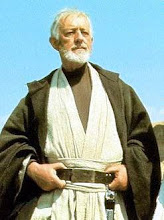Starting in verse 10, we are introduced to an object of curious workmanship. On the morning of their intended journey into the wilderness,
Lehi finds this object on his tent door step. It says that he was greatly astonished. It was made of fine brass. There were two spindles in it and one pointed the way they should go in the wilderness. It is interesting to note that the actual word
Liahona was only mentioned once in the Book of Mormon. It wasn't even at the time
Lehi's family used it. In
Alma 37:38, Alma is speaking to his son
Helaman and gives more information about the
Liahona than we see in this chapter (and we will be introduced to more of its characteristics later on). He says that the word
liahona means compass. Alma relates the story of
Lehi's family traveling in the wilderness, and that the compass guides them. He also says that this is a type of things spiritual. If we follow the commandments of God, we will be making our course towards heaven to live with Him. The
Liahona worked by faith. If we do not use faith and follow the commandments, we will be just as if we are going around in circles here in life and not progress towards the kingdom of God. As a side note, Alma also said that the
Liahona was prepared by God and the workmanship was so good, at a level too high for man to craft or produce. The
Liahona was eventually passed down from father to son. Alma was probably giving this speech to his son
Helaman when he was passing the
Liahona to him, along with the charge to maintain their records.
Here is an excerpt from the Book of Mormon Institute Manual:
Like the
Urim and
Thummim, the
Liahona was a physical device that aided in the coming forth of revelation. Mechanically, it pointed the direction of travel for
Lehi’s family (see
1 Nephi 16:10). The
Liahona, however, had more than a mechanical function. The arrows or pointers only worked according to faith (see
v. 28). Even more remarkable, on the ball appeared writing which instructed and exhorted
Lehi’s family (see
vv. 26–27, 29).
Nephi indicated that the writings were “plain to be read” and gave “understanding concerning the ways of the
Lord” (
v. 29). The
Liahona was indeed a remarkable instrument. In it Alma saw a type or symbol of the word of God, or the gospel (see
Alma 37:38-47). The
Liahona was treasured by the writers of the Book of Mormon and seems to have been passed on with the plates. It, along with the plates, the
Urim and
Thummim, the breastplate, and the sword of Laban were shown to the Three Witnesses by Moroni (see
Doctrine & Covenants 17:1).
So, let us be faithful, and not slothful, in following the commandments of the Lord and pay attention to the writings He has given through the mouths of His holy prophets in the scriptures and the conference issues of the Ensign. To help, here is a link to the
latest conference issue of the Ensign. (Click on November.)

